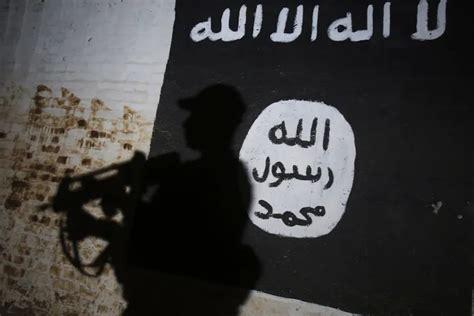
Penn State Abington student indicted for lying about ties to ISIS terrorists
Federal authorities have charged a sophomore at Pennsylvania State University’s Abington campus with lying about his contacts with ISIS sympathizers and assistance he gave to the plotters of an averted terrorist attack in Chicago last year.
Kamal Fataliev, 19, of Philadelphia, posted more than 200 bomb, poison, and weapons-making manuals to multiple terrorism-related chat groups while working part-time and attending business classes at the university, prosecutors said.
His involvement came to light after the FBI disrupted the Chicago plot and discovered more than 700 messages between him and one of the suspects last year. And yet, when agents confronted him about those contacts, Fataliev twice lied about his involvement, according to court papers filed in conjunction with his arrest.
“Through his lies, Fataliev sought to frustrate an investigation into the identities of others who may have access to bomb making manuals and similar resources that he posted in two separate online groups populated with terror supporters,” Assistant U.S. Attorney Vineet Gauri said in a detention memo filed last week.
He faces two counts of lying to the FBI, punishable by up to five years in prison should he be convicted.
Prosecutors declined to discuss why they chose to charge him with that crime instead of a more serious count like providing material support to terrorists, which carries a 20-year maximum sentence and has been levied against dozens of other Americans accused of aiding plots by ISIS and other foreign extremist groups.
Honor student on campus, alleged ISIS contact online
During a brief appearance in federal court last week, Fataliev appeared sullen and withdrawn. He said little as he entered a plea of not guilty.
His attorney, federal public defender Jonathan Alan McDonald, described the allegations against Fataliev as “vague.”
“For all the talk of terrorism, he’s not being charged with any sort of violent act,” McDonald said. “His only engagement is in online chats.”
What led Fataliev, a legal permanent resident with Russian citizenship, into extremism remains unclear. McDonald did not return to requests for comment.
But he described Fataliev in court as an exemplary student — a graduate of Pennsbury High School in Bucks County and a National Business Honor Society member who maintains a 3.99 GPA while working in IT support at the university.
“He seems to be in all other aspects, a young man going in a very positive direct,” McDonald told the judge.
Prosecutors said that success masked Fataliev’s darker proclivities online. When agents first obtained a warrant to search his home last year, he admitted to keeping hundreds of firearms and explosives manuals on his computer, they said. Fataliev told investigators that he’d provided the materials to people he believed to be legitimate ISIS fighters.
In a separate interview a few months later, he told agents he’d abandoned radicalism and had sworn off any further contact with terror-related online groups, according to court filings.
That resolve didn’t last, Gauri said.
Within months, Fataliev offered to assist a cooperating FBI witness who was posing as a terrorist in planning a Memorial Day weekend attack this year, Gauri said in court last week.
According to government court filings, Fataliev helped connect the witness with terrorists he knew overseas and offered suggestions, such as advice to buy the supplies needed to build the bomb at different stores so it would be harder for investigators to track down the source afterward.
Just before the holiday weekend, agents once again confronted Fataliev. This time, he insisted he never offered any advice or encouragement for an attack and said he didn’t know the timeline of any impending terrorist strikes.
“The FBI has given this young man plenty of opportunities to straighten out his life,” Gauri said.
Fataliev remains in federal custody after U.S. Magistrate Judge Elizabeth T. Hey determined he was a risk of flight and ordered him held until trial. She noted he’d made two separate trips to the Russian consulate in New York City after he knew he was under investigation.
Following Fataliev’s arrest, prosecutors said, his father asked if he should take his son out of the country.
A trial date has not yet been set in Fataliev’s case.
Source » msn.com





